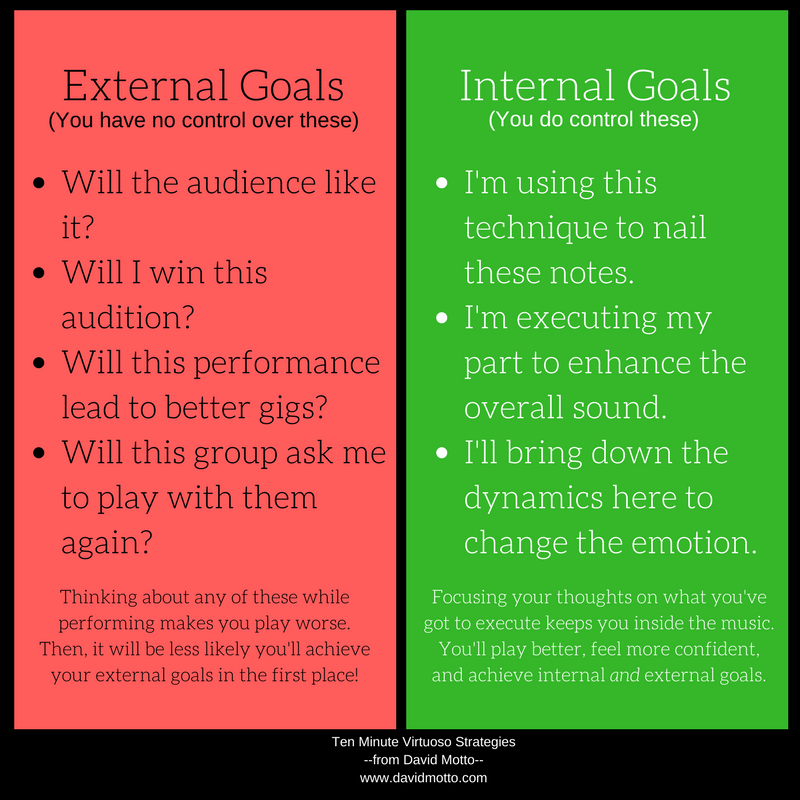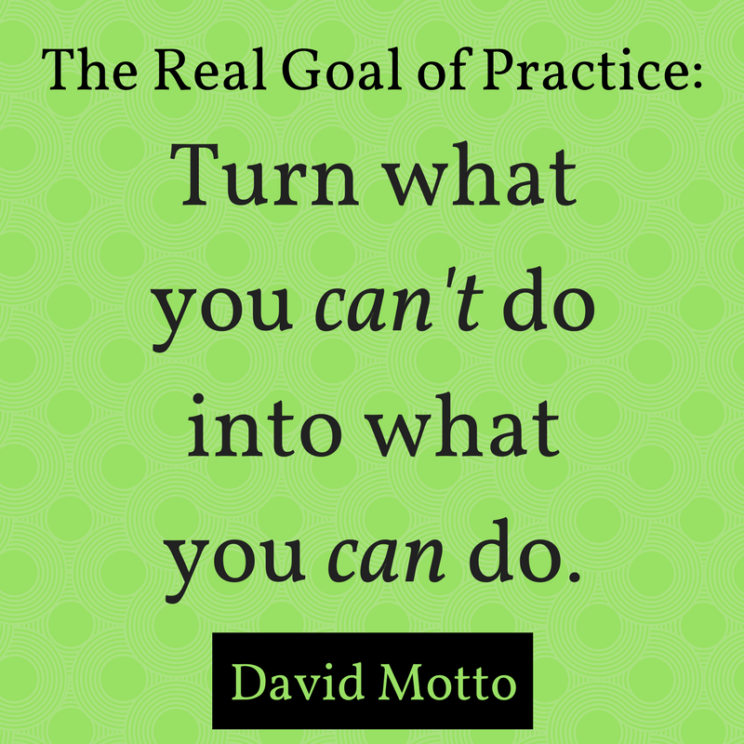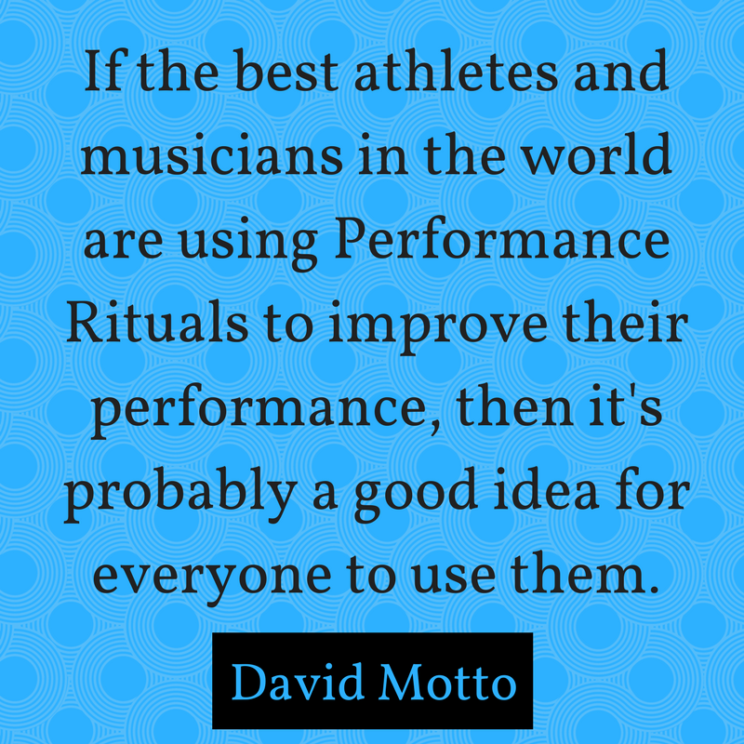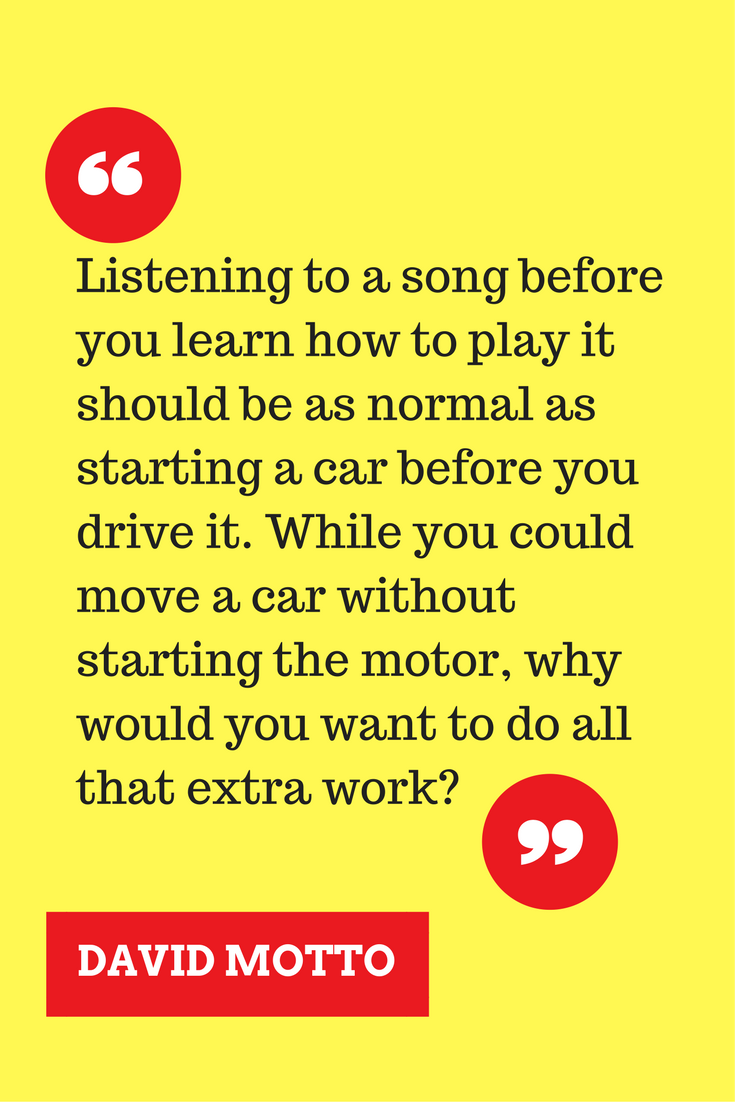David Motto’s Practice Tip of the Week:
Learning from Live Performances
Practicing Can Be Lonely
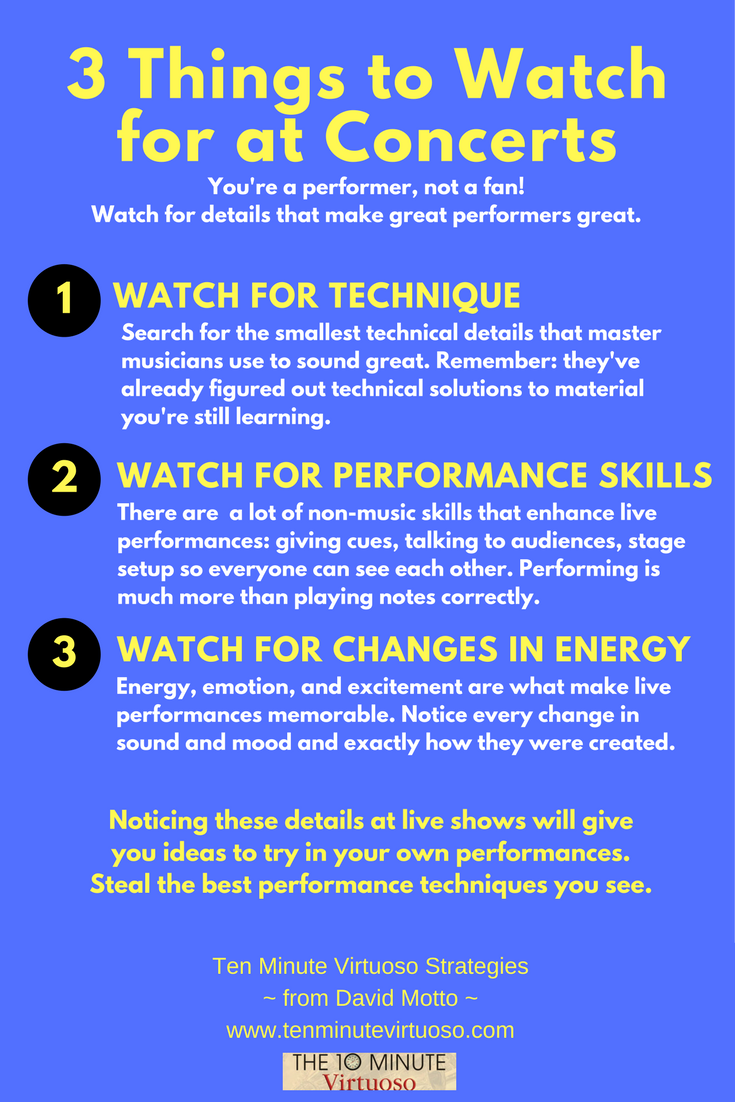
Becoming a great musician takes more than great practicing. The practice room is a solitary place, and it’s important not to isolate yourself from the real world.
I recommend performing whenever possible, joining groups to play with other musicians, and seeing as much live music as you can. Each of these will promote your musical growth- and make the process of becoming a great musician less lonely, more social, and a lot more fun.
Today, let’s talk about the benefits of attending live performances, my 3 Recommendations for what to do every time you see
live music, and what to do if you don’t have the time or money to see live concerts.
The Benefits of Attending Live Performances
Some people say that attending concerts doesn’t count as practicing, and it’s true that attending a concert is not a replacement for practicing your instrument in solitude. You don’t accomplish the same sort of work at a concert as you do in the practice room.
However, you can make the concert experience an extension of your practicing. By deciding what you like and dislike in the performances of others, you give yourself a clearer picture of what to do with your own playing.
Here are some clear benefits of attending live music concerts:
- You get inspired to reach new heights in your playing
- You see for yourself the standards set by world-class performers
- You renew your commitment to continue practicing and improving
- You set new goals based on what you see other musicians doing
My 3 Recommendations for Watching Live Concerts
When you’re a musician attending a live show, it needs to be a much more engaging experience than it is for fans attending the same show. Fans are there to have fun, be in the presence of greatness, and be entertained. Sure, you’re there for all those reasons too! I’m just saying that you’ve got extra responsibilities if you truly want to get the most out of the concert.
Recommendation 1: Watch performers’ technique
If you’re seeing a truly great musician play a concert, that musician has already figured out solutions to all the technical issues you’re currently having. Watch for these techniques. What do they do on certain musical items that you struggle with? How do they hold their instrument? Do they use a different position or angle for their head, torso, arms, hands, fingers, hips, legs than you do? Scrutinize everything they do for the smallest, most obscure technical details that can move you in the direction of playing more like the musician you’re watching.
Recommendation 2: Look for non-music performance skills
There’s a lot more to performing than playing all your notes successfully. When watching a master performer or group, look for all the stage skills they have: how they set tempos, give cues, position themselves to see the other performers, start and finish songs, talk to the audience. In short, anything that’s outside the realm of executing notes accurately and that makes the performance more interesting. You can copy all of these skills and make your performances better.
Recommendation 3: Notice changes in energy on stage
Audiences react to the energy and emotion of a performance much more than to the accuracy of a performance. You need to manipulate the energy in your playing to create excitement – for you and the musicians you play with as well as for your audience. Many non-professional musicians have a simple formula: Play loud to build energy. Play quietly to lower energy. When you watch high-level pro’s performing, you’ll see that there’s a lot more to it than volume/dynamics. Professionals use varied technique, body language, note articulations, textures, and tone in addition to dynamics to add emotion to their music. Watch closely for these tricks of the trade and steal any ideas that seem interesting to you.
These three strategies will not only give you lasting memories but also specific ideas on how to improve your playing and your performance skills.
No Time or Resources to Attend Live Shows?
Don’t have the time to spend going out to live shows? You can experience them virtually! YouTube, Netflix, and many other sources have thousands of performance videos just waiting for you to watch. You can find concert footage for just about any genre you can imagine.
Watching onscreen isn’t as exciting as being there in person. But, there are advantages to video footage, like being able to rewind and see particularly inspiring playing over and over. (Or, in my case: over and over and over and over.) Plus, you can usually find multiple artists performing a single song or even the same artist playing the same song at several different venues.
Try to attend live performances as often as possible. Concerts can be thrilling experiences and are an integral part of all musicians’ growth. And, inspiration and practicing aside, being an audience member at a live show (or, even a virtual audience member watching a performance video) is a great way to spend time.
To Your Musical Success!
David Motto

